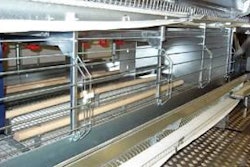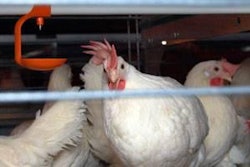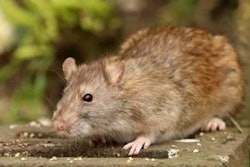We all know the old joke about three all-time yarns that bring on immediate suspicion for anyone who hears them: “The dog ate my homework,” “The check is in the mail,” and “I’m from the government and I’m here to help.” With the last of these statements on my mind, I listened to presentations on the progress of H.R. 3798 (laying hen welfare legislation) at the United Egg Producer’s Legislative Meeting in Washington, D.C., in early May. I have trouble thinking of Congress as the cavalry riding in to rescue egg producers. Let’s face it, when it comes to expecting to receive “help” from the government, I have so many doubts you can just call me Thomas, but, this one time might be different.
Purpose of H.R. 3798
For many, myself included, the biggest reservation we have regarding the legislation based on the United Egg Producers/Humane Society of the United States agreement is the idea of asking the government for “help” and “hoping” that this doesn’t blow up in our faces. I think I have finally come up with a way of making peace with the concept of the federal legislation having an impact that is a net positive for the egg industry. If H.R. 3798 is passed by Congress, this federal legislation will protect egg producers from state ballot initiatives, and it allows for the industry to transition out of conventional cages without destroying the industry in the process.
Asking the federal government to protect your industry from the state government seems a little backward from what would normally be done, but in this instance I think that it is appropriate. The ballot initiative process would likely lead to regulations that would call for a cage-free industry, which would not benefit producers, consumers or laying hens, rather it would lead to a smaller industry, more expensive eggs and not improve hen welfare.
Preserving efficiency
Enriched colonies are a scaleable way of housing hens and producing eggs. The economies of scale in the production and processing of eggs that the industry has gained over the last five decades will not be lost in a transition from conventional cages to enriched colonies. The best estimates are that production costs will increase only slightly with enriched colonies, hen welfare will be improved, and a national U.S. market for eggs will be preserved. Egg producers in Iowa should be just as concerned about getting H.R. 3798 passed as those in California, Ohio, Michigan, Oregon and Washington, because the majority of eggs produced in Iowa need to be consumed in other states. Egg surplus states need to preserve a national market for their eggs, and H.R. 3798 does this.
I still can’t picture Congress as the guys and gals wearing the white hats, but this is one time that I think they can help. Egg producers need to carefully consider their position on H.R. 3798, and I strongly encourage all of them to let their elected representatives in Washington know where they stand on this important bill.
I would also like to know where you stand on passage of H.R. 3798. Please send me an e-mail and let me know if you are for it or against it and why.


















